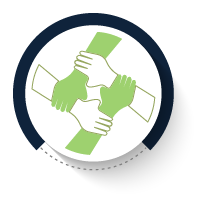
Community Safety and Well-Being Plan
Overview
North Bay’s Community Safety and Well-Being Plan (CSWBP) is a coordinated effort to foster a safe, healthy and inclusive community by responding to identified priority risks. The Provincially mandated Plan, builds on the community’s strengths while also addressing gaps in the community’s safety and well-being landscape. Ultimately, the CSWB Plan sets out to meet locally identified goals, outcomes and objectives through collaborative outputs and actions.
Researched and developed in 2020, the Plan was ultimately reviewed and endorsed by Council in 2021. Collaborative work on the Plans 4 priorities continues, with a number of strategies and actions already completed.





